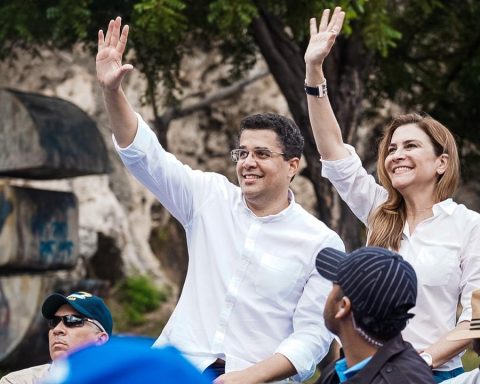Access to the services provided by state governments must be guaranteed. To do this, it is necessary not to neglect the four dimensions of accessibility: physical, economic, territorial and temporal. The first refers to the existence of the service in terms of quality and effectiveness; the second implies the application of equity in cost, so that people with limited resources can also access it in addition to the wealthy; the third refers to territorial proximity, whether through spatial decentralization or electronic government, so that those who live in remote places can also access it. Finally, the fourth implies that the hours during which a service is available must be compatible with people’s educational and work activities, so that they can access it.
Regarding this last aspect, the services provided by governments and public institutions are usually during normal working hours, that is, from 8:00 or 8:30 to 12:00 or 12:30, and from 14:00 or 14:30 to 18:00 or 18:30. Since people with dependent employment also tend to work during these hours, they usually have limited access. If people want access, they would have to negotiate a permit subject to replacement hours, or take a day or half day of vacation. If the administration of the service is corrupt and unnecessarily complicates and delays the process to induce bribery, it is possible that the interested party will have to spend all of his vacation time. This lack of access for workers occurs, for example, if a person wants to report a case of child abuse to the Children’s Ombudsman (dependent on a municipality, GAM), regularize the ownership documents for their home or land (GAM and Real Property Rights), process a legal personality (governors and Vice-Ministry of Autonomies), obtain a Certificate of Fiscal Solvency (General Comptroller’s Office, CGE) or a professional or postgraduate degree (state universities), among many other procedures that citizens need to do. Something not the same, but similar, happens with those who study. For example, if someone wants to leave their child in a municipal care center to attend their 7:00 class, it only opens at 8:00.
Thus, the hourly practice of public administration not only generates a violation of the right of access to government and public services, but also of other rights, such as the right to self-care, the right to vacation, the right to education and the right to care for dependents (infants, children, grandparents, etc.), among others.
Although one of the great solutions may involve providing these services through the implementation of so-called “e-government” (automated or personalized attention via the Internet), not everything can be solved by this mechanism. In addition, a considerable number of people do not have access to the use of technology, either for economic reasons or because of computer illiteracy.
Therefore, it is important that the country’s governments and public institutions adapt their service hours, making them compatible with the principle of temporary accessibility. To do this, two work shifts should be implemented and, if necessary, up to three. So, for example, one shift could be open from 6:00 or 7:00 to 14:00 or 15:00, and another shift from the last hour to 22:00 or 23:00. If necessary, there could be a night shift that would be open from the previous hour until 6:00 or 7:00 in the morning. In this way, not only could more employment and greater productivity be generated, but the problem of temporary access to services would also be resolved, since one could go to carry out their procedures at dawn, at noon or at night if they work traditional hours. In the case of public servants, if they work in the morning, they could access the services in the afternoon or vice versa. This could even facilitate access to teaching. In the case of maintenance of congested streets, work could be carried out at night (from 10:00 p.m. or 11:00 p.m. to 6:00 or 7:00 a.m.). Work could even be scheduled on weekends for some cases where uninterrupted temporary coverage is required.
On the productive side, chaos would no longer begin in cities after 6:30 or 7 p.m., due to the laxity in traffic rules and sales on sidewalks and streets due to the absence of police and municipal guards. Public works would be completed more quickly, revenue from fines and from the extended operation of fee-based parking lots would increase, among many other benefits.
Such an extension of the service hours of state institutions is constitutionally possible, since, although labor regulations establish a maximum of eight hours of work per day, the Constitution (CPE) does not impose a restriction on shifts for public administration, leaving that to the decision of legislators when it says: “The law will regulate the […] working day, overtime, night surcharge, Sundays […]” (art. 49.II). Although the Public Servant Statute states: “the working hours of public servants shall be established in accordance with special regulations determined for each Administrative Organization System” (Law 2027, art. 46), due to the legal reservation of the regulation of rights, obligations and prohibitions, sanctions and the specific working day (CPE, arts. 109.II, 14.IV, 116.II and 49.II), it cannot be a regulation, but a law that establishes the working day, as well as the work shifts.
Since the CPE, when giving a mandate to law, does not mention the scale of government from which this law must emanate, it must be interpreted based on the distribution of powers. As a result, it will be seen that municipal, indigenous, departmental governments and the central government, since the work schedule is part of the executive power and, due to the reserve of law, power of the respective legislative bodies, all of them have prerogatives to define their work schedules and shifts through their own laws for their respective governmental spheres. Being in a law, a work schedule of two shifts and even three will be legal, so the governors and heads of public entities would have nothing to fear, since the principle of legality that governs public administration (CPE, art. 232) only requires that executive and administrative actions and decisions be supported by abstract laws. This being the case, the CGE would not have to observe the double and triple shift. However, this cannot be general or arbitrary, and the creation of more than one shift for each position must be justified by its strict necessity, the opposite being observable due to a breach of substantive due process (SC 752/2002-R).
It should also be noted that Convention 1 (C1) of the International Labour Organization (ILO) states that “the working hours of staff may not exceed eight hours per day”, and this does not apply “to persons occupying an inspection or management position or a position of trust” (art. 2). This implies that there cannot be different inspectors, advisors, chiefs, directors, secretaries, vice-ministers or ministers for different shifts and, obviously, even less so elected authorities, with this possibility only existing for subordinate public servants.
Regarding night hours, the ILO says that “the term night work means all work performed during a period of at least seven consecutive hours, covering the interval between midnight and five in the morning, and which shall be determined by the competent authority after consultation with the most representative organizations of employers and workers or by means of collective agreements” (C171, art. 1.a).


















